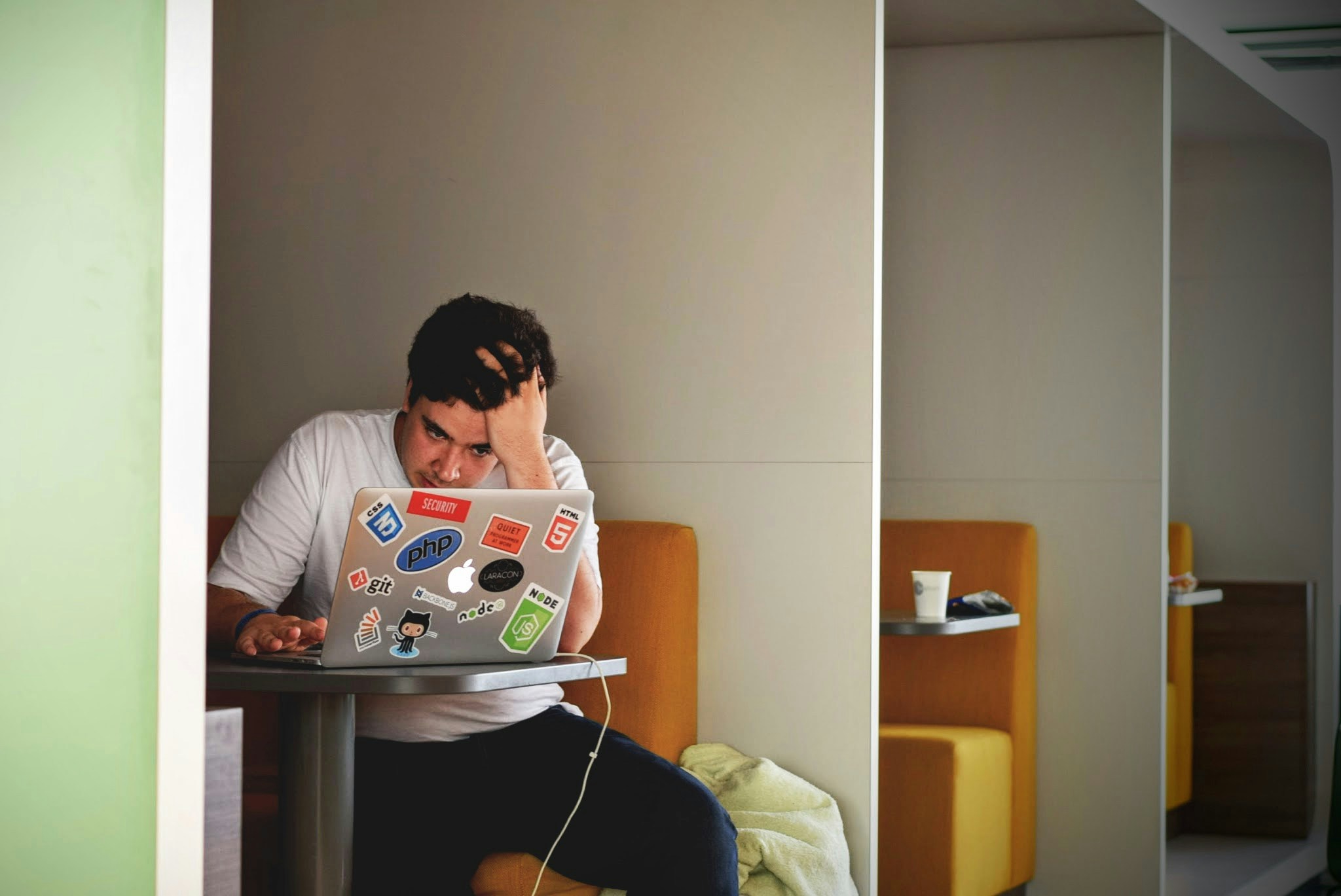Image: stress via tim gouw on Unsplash.jpg
There are many awareness months; however, April is recognized as National Stress Awareness Month. This is a very appropriate month to attribute stress awareness to, as many college final exams, projects and essays take place during this time. As finals are approaching, much stress comes with it. However, there are several steps and resources that you can use to manage finals stress during the prior weeks and the week of.
Symptoms of stress vary from person-to-person. Anchor Therapy LLC identifies the most common symptoms of stress in college students as changes in appetite, irritability and loss of patience, withdrawal from previously enjoyable activities and friends, difficulty sleeping, stomach aches and digestive issues, excessive worry, continuous negative thoughts and decreases in grades. As most college students attribute the most stressful time of the school year to finals week, these symptoms may appear or worsen during that time. According to U.S. News, a survey by the American Addiction Center found that exams were the biggest stressor among respondents, with academic pressure being the third-highest factor. They also found that more than 89% of students stated they felt stress from exams, and 74% said studying brought them stress. Stress attributed to studying for and taking finals may seem inevitable; however, this is not the case.
A primary way stress can be reduced when preparing for finals is to plan ahead and create a schedule. When students procrastinate on their studies, they are forced to cram for final exams right before the exam takes place. This majorly heightens stress levels and reduces the quality of work. Although an exam may look like it is a ways away on the calendar, you should start preparing for it now as you may have several exams to prepare for. In order to reduce procrastination and cramming, it is imperative to create a schedule and stick to it. A firm routine reduces the ability for students to procrastinate with various methods of distraction. Instead, a sense of normalcy will be established and preparing for exams will become that much easier. Your routine will be most effective if you create a to-do list with final preparation tasks you need to complete. You will then be able to concisely identify what needs to be done and in what order.
Another step that students can take to reduce stress is to avoid multitasking. Multitasking is commonly an effect of cramming due to procrastination. Once you have an established routine and to-do list, multitasking can minimize. Reducing multitasking is imperative as focusing on individual tasks and topics will yield better retention and results, as well as prevent burnout. Lindsey Giller, a clinical psychologist, stated, “So if that’s eating a meal while our laptop is open and we’re creating a study guide for ourselves, that is actually more exhausting for our brain,” she says. “We feel that fatigue, we’re less productive, things take longer and we’re more likely to feel that burnout at this time of the year.” Thus, being able to tackle a task one-by-one will promote better health, also.
When following your routine and tackling tasks, it is also important to prioritize mental and physical health. Taking mental breaks and engaging in exercise will help to regulate stress levels and increase focus. Study breaks, such as jogging, taking walks and spending time with friends will also reduce the feeling of isolation when studying for long periods of time. For instance, John MacPhee, the CEO of a nonprofit working to project emotional health, wrote, “Taking some break time, even for a few minutes, to connect with others can help recharge you and is good for our health and wellbeing as humans.” Research, as expressed by AnchorTherapy.org, has proven that students who engage in self-care and mental breaks possess advanced senses of concentration and a better ability to recall information.
West Chester University’s Student Health Services website also provides much information regarding stress. Here, you can identify what stress is and the physical, mental and cognitive signs of stress. They also provide a link to a stress screener quiz which estimates your current level of stress. In addition, there is also much information regarding time management, relaxation and healthy habit strategies.
Like many universities, WCU also has many resources students can use when dealing with stress. Counseling and Psychological Services may be very helpful to you if you are dealing with stress. They are located on the second floor of Lawrence Hall and their phone number is 610-436-2301. If you are interested in individual or group counseling, please reach out. In addition, WCU also has a Wellness Promotion Service. This service helps students learn about health, wellness and well-being. They are located on the ground floor of Commonwealth Hall and their phone number is 610-436-0732. If you would like to learn about their stress mitigation resources, such as stressbuster kits, please reach out.
Sierra Williams is a fourth-year English and Political Science major. SW960048@wcupa.edu

